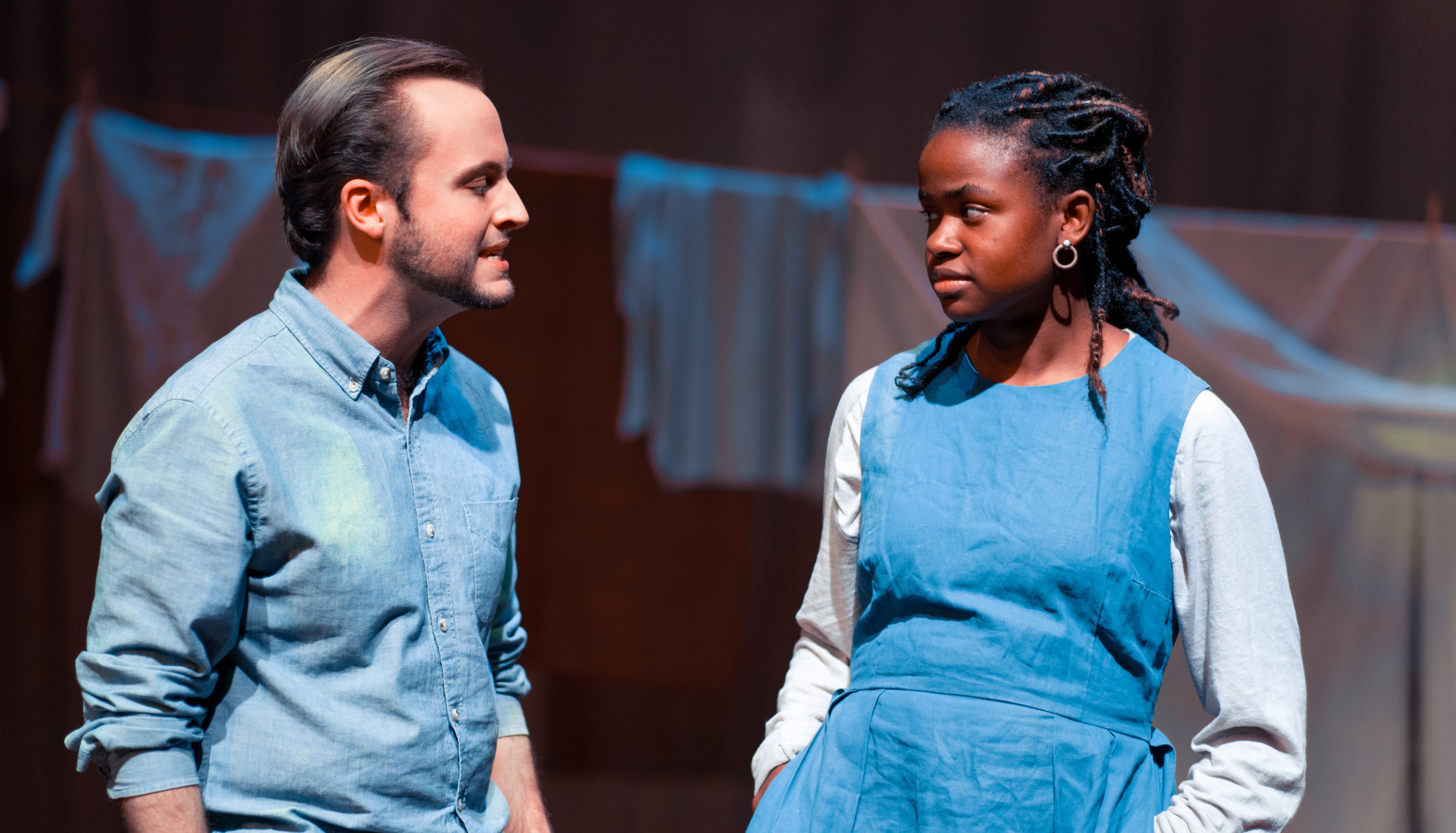Whose Baby is He?: The King’s Players Perform ‘The Unusual Tale of Mary and Joseph’s Baby’
On November 2-4, The King’s Players delivered four performances of The Unusual Tale of Mary and Joseph’s Baby.

The Christian doctrine of the Incarnation hinges upon the idea that a baby was born to a virgin mother through a divine conception. This tale is so familiar to many Christians that we forget how unexpected—even unbelievable—Jesus’ birth would have been to Mary and Joseph’s community. In the musical The Unusual Tale of Mary and Joseph’s Baby, playwright Chris Cragin-Day and recording artist Don Chaffer clear the fog of familiarity from the Biblical account and imaginatively present the story in all its strangeness.
Unusual Tale was first performed at the Summer 2016 International Fringe Festival in New York City, where critics called the folk musical “outstanding” and a “breakout hit.” Later in 2016, Unusual Tale played at Knoxville’s River and Rail Theater. The River and Rail company will again stage the musical in Knoxville and Oklahoma City this winter.
On November 2-4, The King’s Players, in association with the Media, Culture, and the Arts program at King’s, delivered four performances of Unusual Tale at Theater 315, a black box theater at The Salvation Army Times Square. Starring were junior Angel Boyd (Mary), sophomore Patterson Tompkins (Joseph), senior Isabelle McCauley (Elizabeth and other characters), and freshman Jordan Marshall (Mary’s fictional cousin Benjamin, and other characters). Laura Dupper, who was assistant director for the Fringe production, directed the show. Music director was Cameron Mizell, who also musically directed at Fringe and worked with Cragin-Day and Chaffer on their first musical, Son of a Gun. Sixteen King’s students made up the production team, with president of The King’s Players Stevie Hernandez (’20) serving as student producer.
The executive team of The King’s Players chose Unusual Tale after Cragin-Day, assistant professor of English and theater, suggested her work to them. Cragin-Day says, “I just had a feeling that King’s students would be really good at this show. It’s very Kingsian in its blending of history and theology, Scripture and the imagination.”
As Cragin-Day describes, the musical weaves the Scriptural account into a winsome, human story. All the major components of the Biblical story are present, from the Annunciation, to the Magnificat, to the stable birth, to the flight to Egypt. But Unusual Tale also gives personalities to Mary and Joseph, imagining an impetuous Mary who steps onto a crate to declare she will do whatever God needs to deliver her people from the Romans. When an angel comes to her—three actors singing in three-part harmony, the angel’s wings formed from sheets hung from the sides of the theater—Mary worries, “Joseph’s never gonna believe me.”
After an angel speaks to him in a dream, Joseph trusts the baby is God’s. Yet he still feels at times like an outsider to the mysteries revealed to Mary. “When it happens to you, it’s not called believing: it’s called knowing,” he retorts to Mary when she complains about his lack of faith.
The show is billed as a comedy for good reason. There are invented characters like Benjamin, who spills the beans of Mary’s pregnancy to Joseph and “wonders who’s playing the Dad role,” and Naphtali, a shepherd who arrives at the stable with a handy birthing checklist for fathers (and sheep). The songs are both clever and theologically informed, scattered with references to Jewish history and paraphrases of the gospel accounts.
Cragin-Day says, “I always write with the NYC audience in mind. I’m not really interested in writing for the Christian sub-culture. I love that Christians love this piece, that it’s meaningful to them. But more than that, I love that people who don’t believe in the virgin birth love this piece, that it’s meaningful to them, too.”
Unusual Tale makes the story of Jesus’ birth emotionally compelling whether or not audiences take it as history. Unwed and pregnant, Mary faced the prospect of being stoned to death for promiscuity, or at the very least raising Jesus alone. Joseph risked his reputation by marrying her anyway. For believers, their example means that we, too, can come near to God. As Mary sings near the end of the play,
Maybe He wanted the mother of His son to be angry
Maybe He wanted the mother of His son to be poor
Maybe he wanted the mother of his son
To trip up everyone
And make it easier to come undone
Maybe He needed all of them to wonder,
“Whose baby is he?”
Maybe he wanted to make me an open door
So no one could think that they weren’t worthy anymore
So everyone could see someone as lowly as me
Call him my baby.





